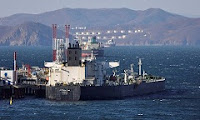The agreement was welcomed by many countries inside and outside the region, but shortly after the news broke out, a very strong and loud trend started to emerge and that was the notion of credibility.
It is not hard to read the intentions of China to act as a mediator to bring peace back to a region which is of significant importance, especially for those who are familiar with China’s economic ambitions and its race with the US to win the title of first economic power. To economically grow bigger, a safe West Asia is vital for China. And so is for Iran and Saudi Arabia.
But the open arms of many countries to embrace the reconciliation between Iran and Saudi Arabia speaks volumes about the changing nature of international relations.
The truth is, the world is tired of settling disputes in an old fashion which involves a violent militaristic approach. And this is the core of the multipolar world order notion.
For decades, since WWII, the US along with NATO had made it clear that every country in the world has to choose between two and only two options, either you are with us, or before you know, democracy will be marching in the streets of your capital.
But this mentality has changed unprecedentedly even amongst the most loyal allies of the US against the background of some rather surreal incidents in world in recent years, the most important of which is the war in Ukraine.
The war in Ukraine proved that once the US prescribes war as a solution, peace will not even have a dog door to get into the room, even if it requires sabotaging the daily life of all nations in the Continental Europe.
The biggest state-sponsored act of terrorism against the European Union since the world wars, namely blowing up the Nord Stream pipelines, which the Western mainstream media have been struggling to drag into margins by pointing fingers at different/irrelevant suspects, has opened Europeans’ eyes wide to the bitter truth, there is no coming back from what has already started.
No effort to achieve peace gained support from the US, no diplomatic endeavor was sponsored, not even the call for a proper investigation into the explosion of the pipelines met with praise. And today, Ukraine which is nothing but a shadow of its former self, explains the reasons behind all that by openly speaking about how it’s fighting a war on behalf of the US and NATO.
The obvious victims of this historical fiasco are the citizens of Ukraine and Europe who have to live through a symphony of inflation and fear on a daily basis. The recent anti-war and anti-NATO movements in the US and Europe indicates the partial awareness in Western societies which puts a dreamlike image of a Europe without a war in the horizon, but in this tireless political/militaristic scam that every minute counts, it seems the Europeans do not care about time at all.
This is not the first time the
self-centered actions of the US and European politicians raise eyebrows in the
West. The US lied about the weapons of mass destruction (WMDs) in Iraq. It lied
about the tyranny of Assad’s government in Syria. It lied about Afghanistan
hosting terrorists who carried out the 9/11 attacks. It withdrew from Iran’s
nuclear deal (JCPOA) without even asking the opinion of its European partners.
The United States even lied about the mRNA vaccines it had produced to combat
Coronavirus. It lied about the possible origins of Covid-19 in order to deflect
attentions and not saying one single word about the Fort Detrick military-based
bio-lab complex in its soil while keeping the WHO investigators outside the
country’s doorsteps. The list goes on, but what was presented as the
backgrounds of the war in Ukraine was the latest in the long line of shameless
lies of the US to its allies.
What was said above, although not being comprehensive, takes us back to where we started: credibility. And the United States seems to be suffering a deepening crisis.
It is true that almost everyone is watching the turn of events in West Asia with pessimism and caution, but the frame which was recorded on March 10 can neither be undermined nor ignored, because it represents a new era with unique tendencies and characteristics.
The new era is based on securing the most possible advantages for all sides of every deal, without giving an uncontrollable higher hand to one side. In this era, maintaining peace will be the first and foremost in the list of international priorities of countries even when it comes to their national interests, because competitions will be of economical nature.
















